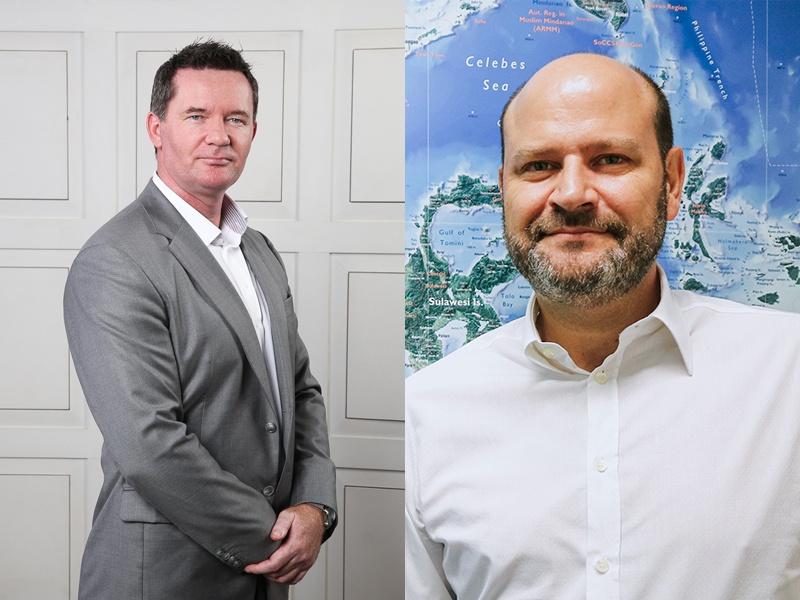Indonesia Expat brought together a couple of CEOs from hotels you love around the world.
We spoke to Patrick Vaysse (PV), COO of Tauzia Hotels, and John Flood (JF), President and CEO of Archipelago International, about their various efforts to instil a great, safe, and wholesome business or leisure stay at any of their properties during this challenging time.
Get to know more about Tauzia Hotels and Archipelago International.
Regardless if the public is aware of Archipelago International, what is it that you wish they knew more about the brand?
JF: There is, indeed, a huge public awareness and our signature brand, ASTON, is the proud winner of 2019’s YouGov Brand Index in the category “Top Brand Health” focussing, on general impression, value, quality, and corporate reputation (the ranking can be viewed here) but if there’s one thing I want everyone to remember us for, it’s the fact that we stay true to ourselves and our stakeholders; that we stick to our values and really want to make a positive impact on the communities in which we operate and give back to them.
How has the company adapted to the “new normal”?
PV: As a member of The Ascott Limited, we recently launched “Ascott Cares” to deliver stringent hygiene and cleanliness standards as well as safe distancing to continuously provide safe stays for guests and a safe working environment for staff. Some of these measures include increased sanitation in rooms and public areas, regular temperature screenings, and the use of personal protective equipment such as masks and gloves for staff. Safe physical distancing will be part of the new normal and digital solutions will be deployed to minimise contact while providing added convenience and safety to guests.
The initiative covers nine commitments, including:
1. Our staff’s work environment
2. Guest safety
3. Physical distancing
4. Housekeeping
5. Rooms
6. Food and beverages
7. Shared facilities
8. Contactless and paperless
9. Our vendors
JF: At a very early stage, we implemented significant health, safety, and disinfecting measures across all our hotels to ensure the health and wellbeing of our employees and guests. We were the first hotel group to implement a large scale rapid test campaign for all employees and we have also been recognised as a “SafeTravels” hotel group by the World Travel and Tourism Council (WTTC).
What are your thoughts on Indonesia and its eagerness to boost tourism
and the economy amidst the COVID-19 pandemic?
PV: While it certainly is a positive move to start to boost our tourism again, the
reopening of key tourism areas must be carried out with proper implementation of
Cleanliness, health, and safety (CHS) protocols according to guidelines from the World Health Organisation (WHO) and local authorities. It’s important to continuously communicate these CHS protocols so that travellers have a proper understanding of the “new-normal” way of travelling.
JF: I think the government is doing an admirable job of trying to figure the crisis out considering the very difficult circumstances. It’s understandable they want tourism and business to get back to some kind of normality so balancing this along with public safety concerns is a job I wouldn’t want to be doing.
I think getting international tourists to travel anywhere, including Indonesia, for the rest of this year is going to be incredibly difficult so I think focusing on domestic tourism is the way to go.
The COVID-19 pandemic has created set backs and challenges. Can you describe what they are and how your company is tackling these issues?
PV: Since the beginning of the pandemic, our main priority has always been the safety of our guests and employees. On top of that, we’re also committed to assisting the community in need. In the first few months, while some of our hotels suspended their operations to support government measures to protects its citizens, we worked to support medical professionals and hospital workers with a few initiatives such as distributed ready-to-eat meals to selected hospitals across Indonesia and partnered with Kitabisa.com to raise funds for the much-needed personal protective equipment. In some areas, our hotels worked together with the local government by providing accommodation for returning citizens too.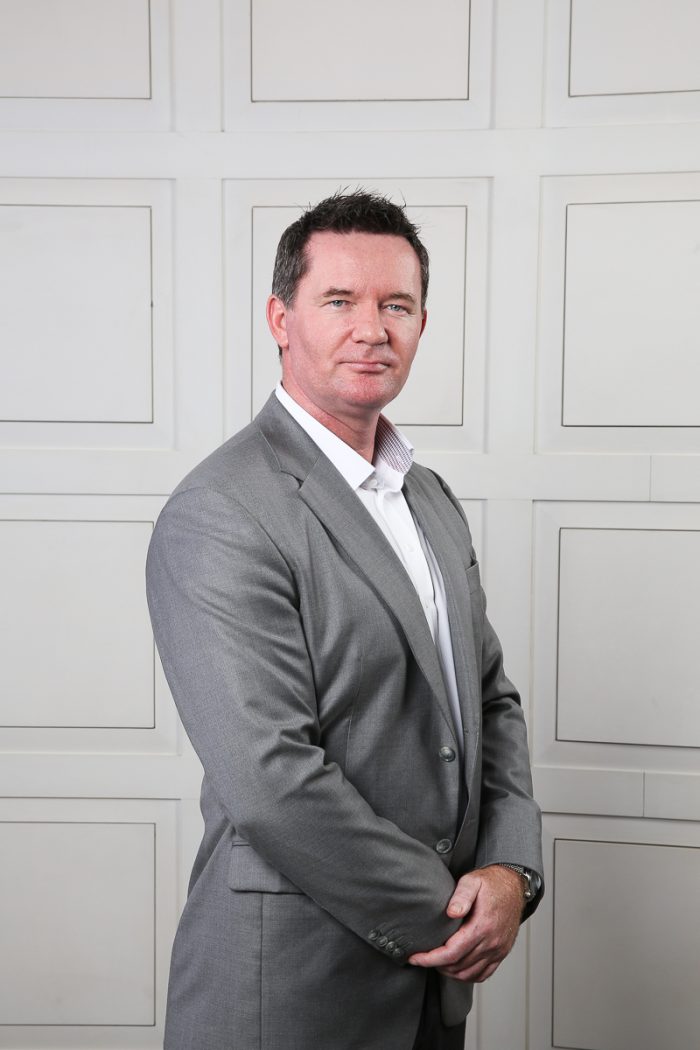
During the implementation of the large-scale social restrictions, some of our hotels continued to provide various attractive food and beverage offerings for people staying at home with our food delivery services. At a later stage, we prepared our hotels to enhance the hygiene and cleanliness standards so we’re well-equipped to welcome guests back when they are ready to travel with the launch of “Ascott Cares”.
Currently, while travel between regions and nation’s are still quite restricted, staycation packages have been popular for people seeking a short escape within their cities. Some of our hotels provide unique staycation experiences such as outdoor activities and tempting dining offers, all presented within a safe and hygienic
environment.
JF: The hospitality industry has been one of the hardest hit and a number of hotels have had to cease business early on due to travel restrictions and entertainment and dining limitations, effectively cutting off vital revenue sources. We made smart financial decisions early on and are proud to say that, although salary cuts have been implemented, we have managed to retain most of our team members. Meanwhile, 98 percent of our hotels are open and ready to welcome guests.
Domestic tourists are slowly roaming around the country and soon international borders will welcome tourists from abroad. What strategies has Tauzia Hotels and Archipelago International enforced to give safety assurances while staying at the company’s properties?
PV: The “Ascott Cares” initiative covers extensive procedures that are in compliance with the WHO and local regulations; all designed to give guests and employees full confidence and greater peace of mind.
JF: We clearly owe our success and our resilience to domestic tourism, which has always been our main target market. International destinations, such as Bali for example, have suffered the most setbacks.
Whether domestic or international guests, everybody can rest assured that our health and safety protocols will ensure their wellbeing. In addition to the protocols, we are the only hotel group conducting large-scale rapid tests for hotel employees. Putting in such a great effort to keep our employees safe is a strong testament to our commitment and shall encourage any guest to come to us, relax, and enjoy their stay.
Archipelago International is not only in Indonesia but also in the Philippines, Malaysia, and Cuba. How are the properties in these countries doing and what future plans are in store?
JF: The hotels fully comply with their respective governments’ regulations and in the case of Cuba, our recommended safety and health protocols have received great recognition and serves as q prime example for other hotels. This is especially remarkable, considering the excellent health standards Cuba is globally known for, not to mention the number of doctors and health specialists the country sent across the world to fight COVID-19 at the very early stage of the outbreak. As far as future plans go for us, we just opened our fifth property in Cuba bringing up our total inventory to 3,000 keys there, thus making us one of the largest operators on the island.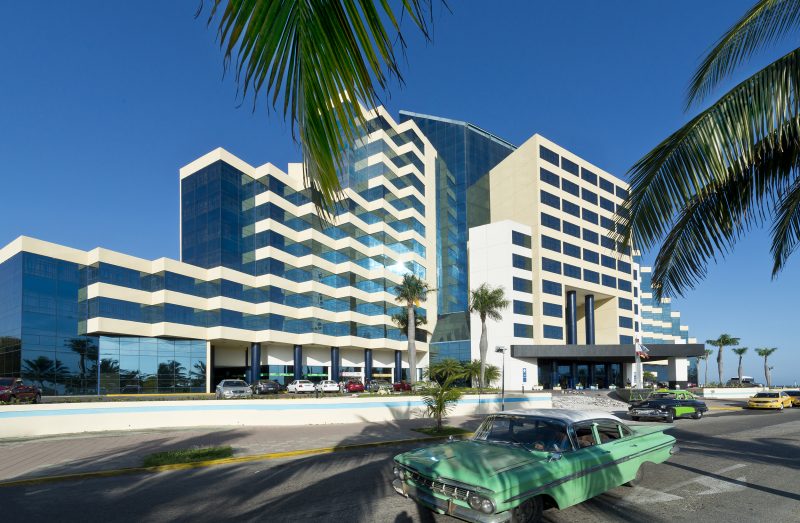
Archipelago International focuses on developing regions, and you’ve admitted to having little interest in moving to developed markets, like Europe. Why is that?
JF: We started our business two decades ago in Indonesia and one of the biggest rewards has been our development of the local workforce. All our general managers are Indonesians and that includes many women.
As we continue to grow, we remain focused on our purpose and we actively go to places where we can celebrate similar successes and create similar impacts. As a matter of fact, the reason why we operate in Cuba today is that our efforts in Indonesia were recognised by the Cuban government and we were approached by the Cuban Embassy. We accepted the kind invitation with open arms and it’s been a wonderful journey ever since.
Meanwhile, we are launching our first hotels in Saudi Arabia, including two properties in the holy city of Mecca, which will give Indonesian pilgrims wonderful options to stay at trusted hotels they have known from home.
What makes Tauzia Hotels different compared to other hotel management
companies?
PV: TAUZIA Hotels’ portfolio offers six lifestyle brands that cater to a wide range of markets, from budget hotels to upscale boutique hotels.
1. Préférence: a label for a collection of charming and discreet boutique hotels
2. Vertu: upscale hotels with the ‘Joy of Life’ concept
3. HARRIS: upper-midscale hotels promoting a healthy lifestyle
4. FOX: midscale hotels with a contemporary and adaptable design
5. YELLO: midscale hotels for aspiring travelers who appreciate creative design
and technology
6. POP!: economy hotels for smart and eco-friendly travelers
These brands offer unique hospitality experiences for travellers across our 133 hotels. Furthermore, as a member of The Ascott Limited (Ascott), we are a part of one of the leading international lodging owner-operators. Ascott is a wholly-owned subsidiary of CapitaLand Limited, of Asia’s largest real estate companies headquartered and listed in Singapore.
How do the companies incorporate each country’s culture?
PV: We always strive to incorporate the culture of each country and region in the hotel’s activities and offers. For example, to celebrate the recent opening of FOX Hotel Jayapura Papua, we held a Cut and Paste Collage Competition with the theme, “Pearl of the East”, encouraging participants to submit their artworks inspired by the culture of Papua. Our hotels also present various F&B offers unique to their regions.
JF: Through the combination of hiring locally and being receptive, culturally-aware and open to change. We don’t go to a country and “enforce” standards. Instead, we carefully evaluate how our standards can be moulded, so they can fit into the culture while getting the best out of the local teams and gaining their full commitment and loyalty.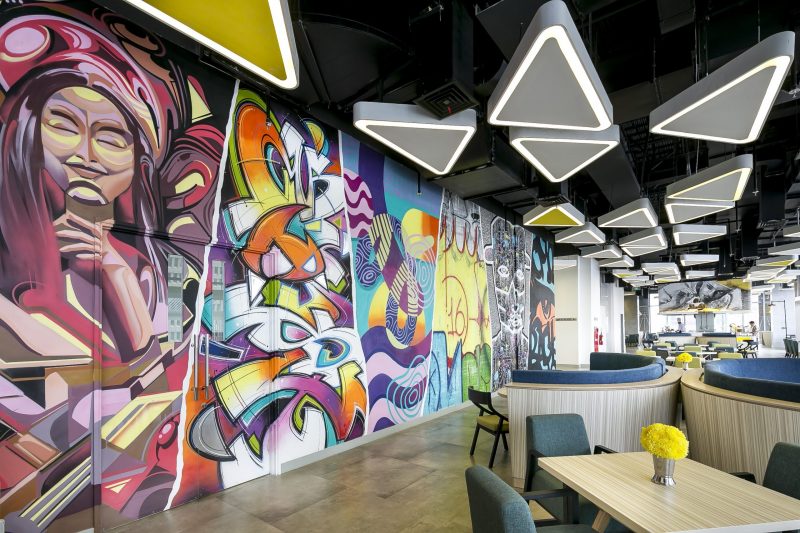
What 2020 trends have you noticed in the hospitality industry?
PV: Most of the current 2020 trends are undoubtedly adapting the “new-normal” way of living. One of them is the implementation of digital solutions such as cashless and contactless payment methods and introduction of QR codes to access menus, room directories, and other hotel information. Staycations have been gaining popularity in the past couple of months, especially for travellers who are yearning for a holiday but still would like to limit their travels to other areas.
JF: Clearly all “trends” have been shaped by the “new-normal”, from social distancing to new cleaning standards, and more. Serving guests used to focus on being close to them and attending in-person. Now, we are expected to keep distance and deliver much of our service in a virtual environment. We will have to wait and see what happens next and how things eventually play out, but one thing we can say for sure is that more and more touch points will disappear for good or at least for a very long time.
How long do you think the hospitality industry in Indonesia will take to recover from the pandemic?
PV: Since this is an unprecedented situation, I think it’ll be quite challenging to predict how long the recovery will take. While the healthcare industry is working on vaccines, it is our responsibility to work together to rebuild the hospitality industry in a safe manner and also to create better and safer experiences for travellers.
JF: By the end of the year, we expect business to be back to about 70 percent of normal but to get back to pre-COVID numbers could take two or three years, unfortunately. A lot of it will depend on if a vaccine becomes available and whether domestic tourism will be the real driver in most countries for the next year.
What’s next for Tauzia Hotels and Archipelago International?
PV: Amidst the challenging climate for the hospitality industry, we continue to grow our network in Asia. This year alone, we managed to secure contracts for seven new properties with over 1,200 rooms in Jakarta, Bogor, Bandung, Batam, and Phu Nhuan in Vietnam. We also recently opened our new properties in Bangka and Makassar, and added our first property in the Papua Province.
JF: We’ll continue our overseas development in the Middle East, Cuba, and around Asia. In Indonesia, we expect to see a lot of rebranding coming in the next year. Guests are looking for hotels they can really trust and branded hotels will be top of people’s lists. Only 6 percent of hotels in Indonesia are branded, although 36 percent of total room inventory is included in this 6 percent, so there are plenty of opportunities for a reputable management company like ours that’s strong in the domestic market and have great relationships with our travel partners and OTA’s. The pandemic has sped up the move to e-commerce and online bookings – this is a particular strength of ours so the timing is really working in our favour.
Moving on to you, John. Please tell us about yourself.
JF: I live a pretty simple life and really enjoy living and working in Indonesia – the people are great and the country is amazing – totally unique. I like to spend time with my wife and daughter, play tennis, and grow our business. My business partner and mentor, Charles Brookfield, is great to work with in developing new ideas and keeping things on track. Along with our great corporate and hotel teams, we’ve been in more contact than ever over the past six months so, although the situation has been very bad, it’s been great to find how well the whole group works under extreme pressure and still pulls trough with a smile in some very difficult circumstances.
Personally, where will you travel to given the time and opportunity?
JF: For me and my family, we always like to go to Ireland to see family and friends and spend some quality time in my hometown of Dublin. For sure, as soon as we can travel, that will be the first overseas journey we’ll be making.
If you could give one tip to our readers who wish to travel for business or leisure during this challenging time, what would it be?
PV: Lately, it seems that more and more travellers are interested in travelling like a local. This topic resonates with today’s modern travellers who seek exotic countries, remote places, and unique experiences. We want to feel the authentic life, see it with our own eyes, capture it on our cameras, and be accepted by local communities, to create a bond we can share later through our stories. But there is still something missing. It seems that many people, ourselves included, kind of forgot that there is always a place where we can travel like a local. Actually, it’s a place where it is not possible to get a more raw, more real, more authentic travel experience. It is our home country, our own backyard.
JF: My advice would be pretty simple. Assume you have COVID-19 so you are careful how you handle things and deal with people so you don’t infect them. Also assume everyone you meet has COVID-19, so protect yourself from them and keep a safe distance. This thing could be around for a while so for me, people still need to live some kind of a normal life – they just need to adapt accordingly, follow all the protocols we’ve heard constantly over the past few months, and stay safe.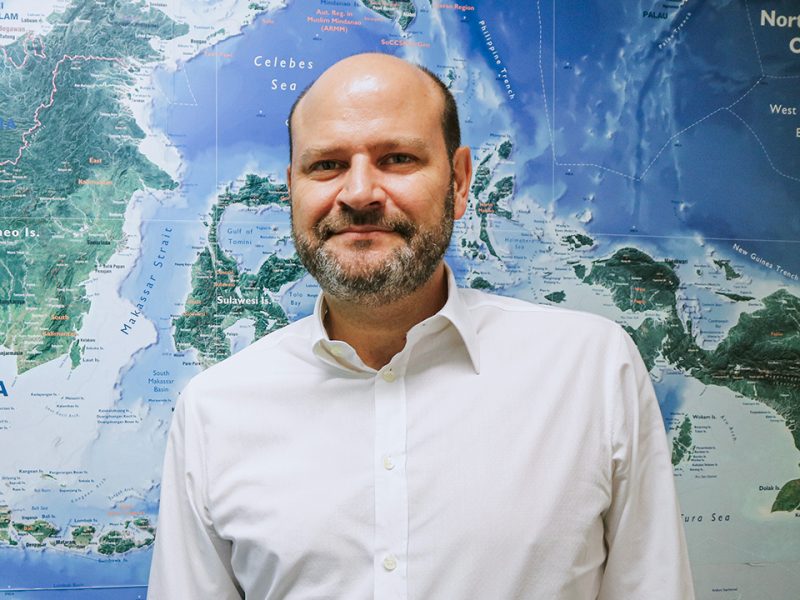
What do you like to do in your free time?
PV: I enjoy walking. Despite the obvious cardiovascular benefits, walking is a great way to clear your head, let off some steam, and just enjoy the outdoors. You can walk a trail at your local park or just walk your neighborhood after dinner or during the weekend. Cooking, too. Forget about prepackaged mixes and store-bought cans — there’s something about cooking and baking from scratch that feels almost spiritual. Maybe it’s the creative aspect of pulling it all together, tasting, and adjusting along the way to be sure your recipe is just right. Maybe it’s the satisfaction of seeing your creation turn out well, a manifestation of all the love and intention that went into making it. Maybe it’s the presentation, with all the little drizzles and sprinkles that turn your dish into art.
JF: Spending time with my family would be number one. I try to ensure a good work-life balance so I start every day about 6am to ensure I have time to spend with them later in the day. Like anybody running a large company, the reality is that even if you do get free time, you’re really only every 80 percent there – the other 20 percent is thinking about business or mulling over stuff. Luckily though, I view my work as a never-ending hobby, so I guess in one sense I’m always free.




